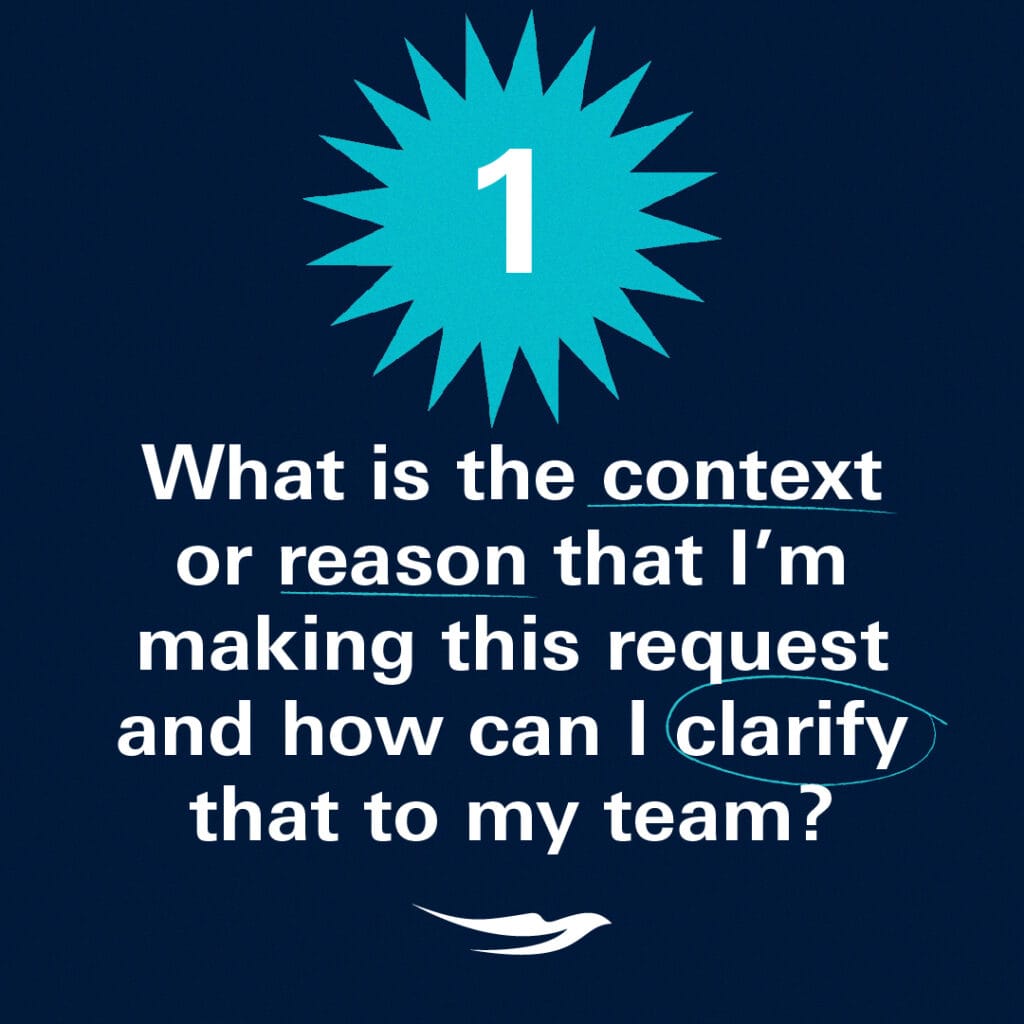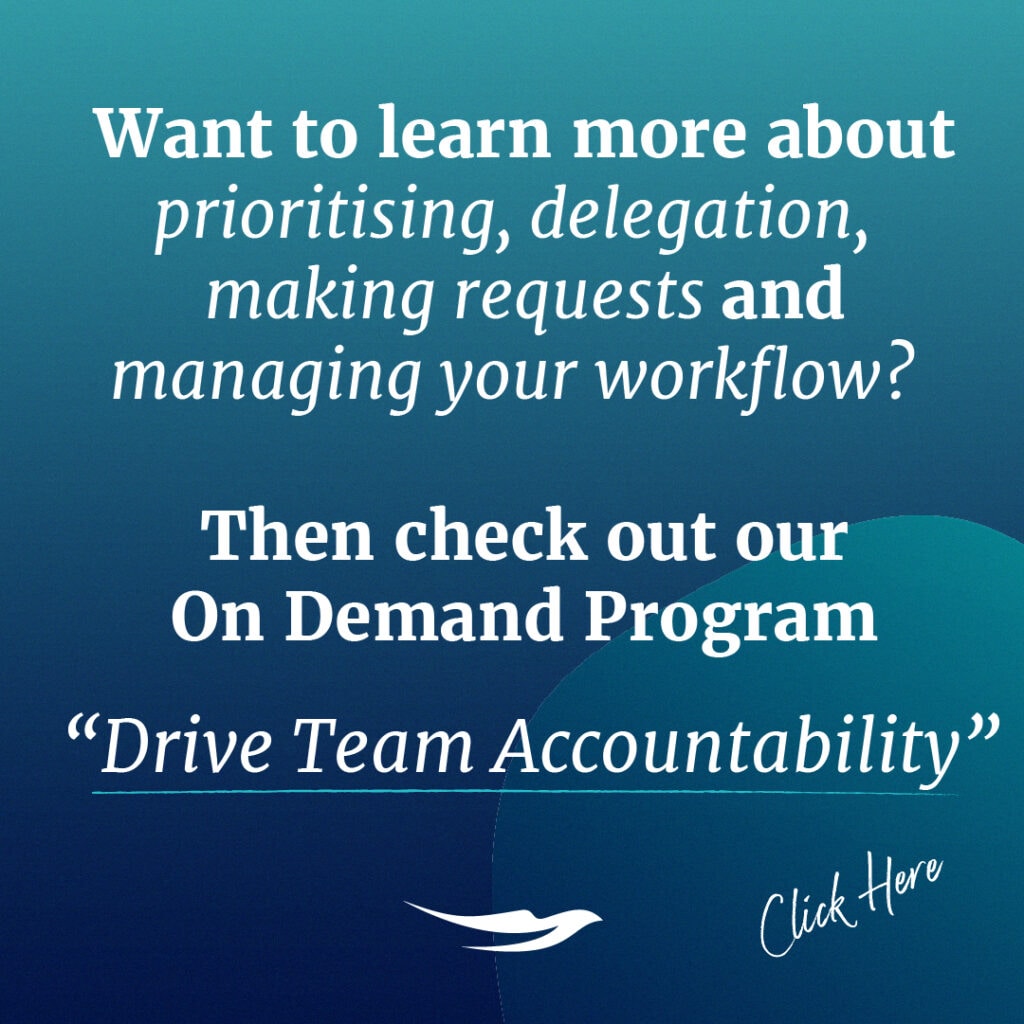Overcoming Overwhelm as a Leader
Top Trending Posts

5 Steps to Feeling Back in Control
As leaders, we can fail to recognise the power of the language we choose to describe what’s happening for us and fall victim to the impact our own language has – we find ourselves in what we describe as “overwhelm”.
Is it possible that you’re creating your own sense of overwhelm?
The word “overwhelm” is most often used in a negative context to describe an experience we have of emotions that we relate to ‘something happening’, or a ‘series of somethings’ happening – perceived as too much to handle.
Even expressing the word “overwhelm” can create a certain kind of inertia, an inability to make decisions, move on and dismantle that which confronts us. More practically, if we are in the practice of expressing the word “overwhelm” to describe our experience, this can prevent us from staying present, thinking clearly and making decisions.
If you find yourself using the word “overwhelm” to describe what’s happening for you, we encourage you to begin transforming your experience by considering these five insights:
1. Interrogate the Story You’re Telling Yourself About What’s Happening Now
Overwhelm arises as a narrative that we tell ourselves about what’s happening. It can sound like “there’s too much to cope with”, “how can anyone expect me to do all this?”, or “it’s impossible to get this all done”. As soon as we express language like this, we invest in this language-based reality and it becomes particularly difficult to shift, because we begin to believe “this is the way things are”, or as the saying goes, “it is, what it is”.
We invite you to challenge the quality of the story you’re telling yourself about what’s happening in the moment when you choose to use the word “overwhelm”.
Ask yourself these questions:
- What stories and interpretations seem to have me experience what I interpret to be overwhelm?
- What language do I notice myself using? Is it helpful or unhelpful?
- What language could I use that would be more constructive and have me feeling as though I can manage things?
2. Substantiate the Story You’re Telling Yourself About What Will Happen in the Future
In addition to the present-moment story that we can find ourselves trapped in, part of the story can relate to the impact a feeling and an experience will have in the future. This not only prevents us from being present, but can have us catastrophising and relating the feelings and experience of now with a series of unhelpful possibilities in the future. Many of these unhelpful possibilities can promote a feeling of anxiety as we entertain all the scenarios that may or may not happen. Unfortunately, this process creates more anxiety, since we accidentally invest in trying to predict and control the future outcomes of the experience we have in the present moment.
To break this vicious cycle, we need to pause and come back to the present moment. The future is difficult, if not impossible to predict, therefore, we have to catch and reassure ourselves that the most influence we can have is in the present moment, and to attend to what’s right in front of us.
Ask yourself these questions:
- If I’m stuck in a negative story about the future, why am I invested in this and what other outcomes are equally possible?
- What steps can I take right now to be more aligned with constructive future outcomes?




3. Break it Down and Enlist A Great Listener or Coach to Help You “Sense Make”
Beyond interrogating narratives, when experiencing overwhelm, it can be helpful to break down the series of things that have you feeling the emotion. Make a list of those things that are contributing to your sense of overwhelm and begin to consider the steps you can take to resolve the items on the list or move forward.
At this point in time, it might be helpful to find a trusted friend, colleague, or even a Coach and to share with them what’s happening for you and to have them help you make sense of your reality – or the way you’re generating your reality. Sharing with someone else helps you step back and look a little more objectively at your list and prioritise the things you can move forward. It also speaks to the old saying “a problem shared is a problem halved”.
Be mindful of not having the other person step in and solve on your behalf, but instead, encourage them to ask some good questions to help you identify areas you can act on to ease your sense of overwhelm.

Ask yourself these questions:
- How prepared am I to begin resolving or dismantling the feeling of overwhelm?
- Who might assist me to gain different insights?
- What questions would I appreciate them asking me?
4. Prioritise and Delegate
Assuming you come up with a list of items that seem to be causing the sense of overwhelm, it could be helpful to prioritise the action you can take. If your list contains a number of work-related items and you are a leader of people, then consider what it is you can delegate to them. The act of making a list, prioritising it and then asking yourself, “who can I delegate this to?”, unravels a sense of overwhelm and therefore disperses the responsibility you may have been holding onto before identifying the cause of your feeling of “overwhelm”.
Be careful at this point not to begin finding excuses for not taking action and sharing the load. Excuses like, “Harry already has enough on his plate” or “Mel can’t do that kind of work”, might amplify the feelings you began with. Instead, it’s time to evoke the mood of ambition and find out how you could have a conversation with Harry and move workflow around or make such a great request that Mel understands the first few steps of how to do the work – this comes down to the quality of your request.
Ask yourself these questions:
- Who can I identify that can take on just one thing from my list?
- What Coaching guidance and support might they need to do the job well?
- Who can I identify that wants an opportunity to stretch, grow and demonstrate they’re ready for the next step in leadership?
5. Clarify Requests, Standards of Performance and Move to Action
In order to effectively shed work, share work or ensure the quality standards meet your specification, the quality of your request matters. Take some time to mindfully prepare what it is you want done, the specific standards of performance you expect and how you want the work delivered. Failing to clarify these aspects of the work ahead of delegating, may cause you a whole series of other problems at the end of the line.
When making a request of someone to take care of work, take the time to specify what you want done, why you want it done, by when you want it done and above all, the standards of performance. To ensure that there is shared understanding, have your performer share back with you what it is that they’re committing to, so that you feel satisfied and can let this go to reduce your sense of overwhelm.




Ask yourself these questions:
- What is the context or reason that I’m making this request and how can I clarify that to my performer?
- What are the specific delivery and quality standards I must include in my request, to provide clarity around my expectations?
- How will I ensure there is shared understanding of what is expected BEFORE the work starts?
This article was designed to contest the very notion of overwhelm and to show you that it is a construct that you can work yourself out of when you identify the emotion, unravel the narrative, choose to map the components that influence the emotion, prioritise, delegate and take action. We wish you more presence and more capacity to make better decisions from a place of mindfulness and composure.
If you’re interested in learning more about prioritising, delegation, making requests and managing your workflow, check out our On Demand Program “Drive Team Accountability”. In under 1 hour, you will learn how to make better requests, secure more reliable commitments and help others stay accountable to their promises.
Share This
Top Trending Posts
Sign Up
to our blogs and receive regular updates.

Stay in the Conversation
with Liberated Leaders...







